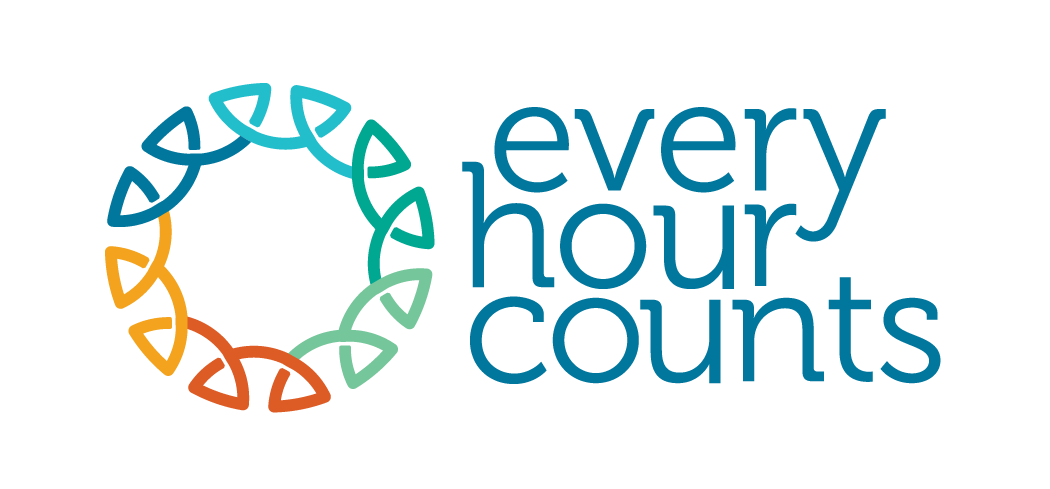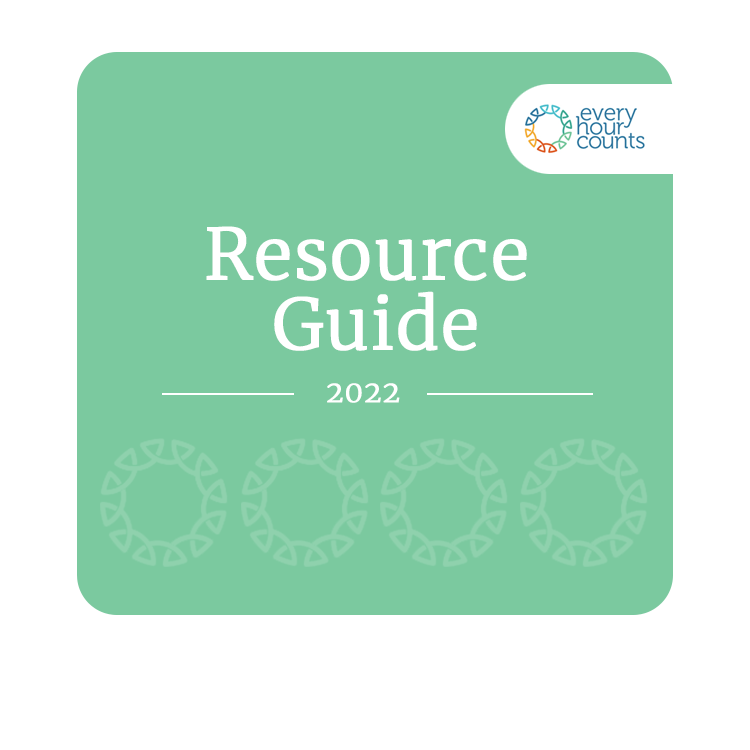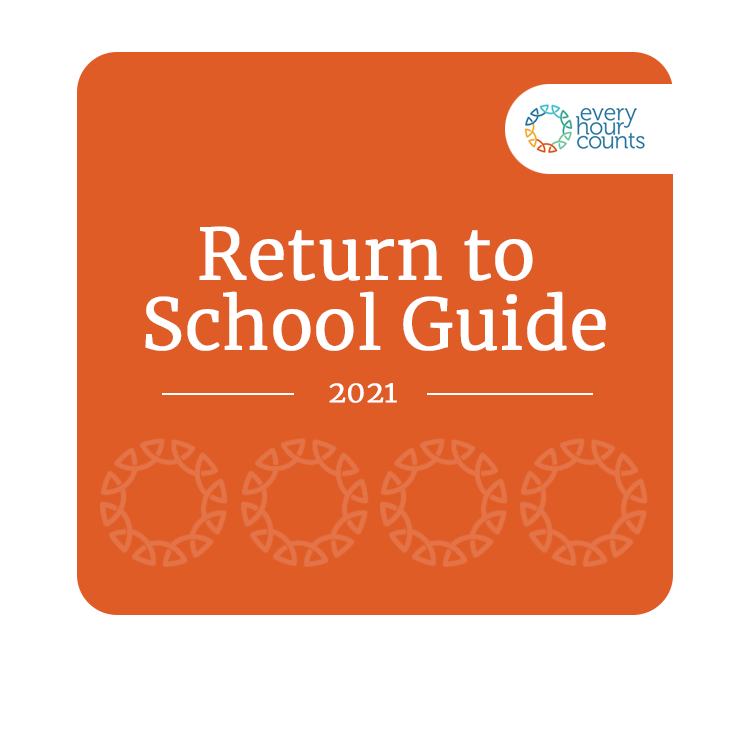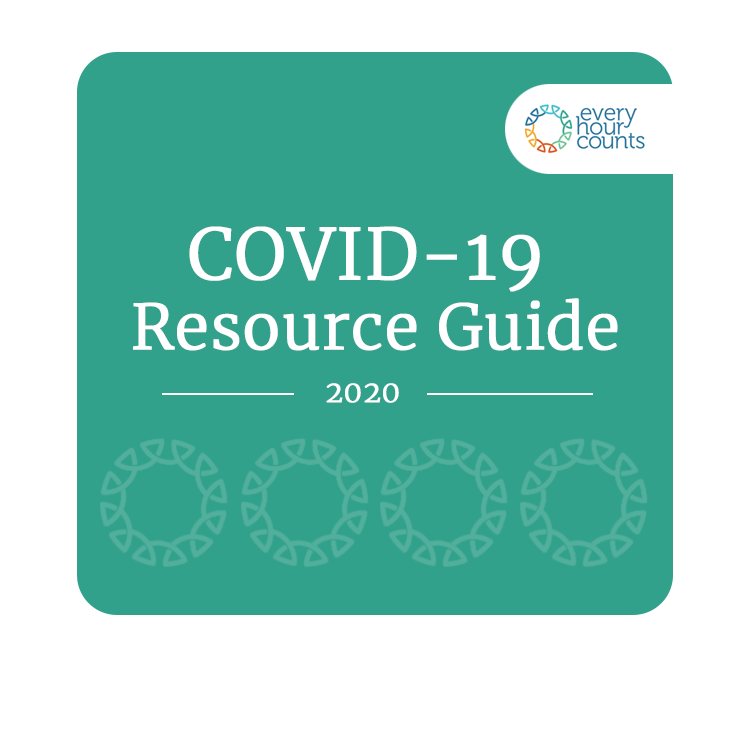Resources
Putting Data to Work for Young People: A Framework for Measurement, Continuous Improvement, and Equitable Systems
The framework is an at-a-glance reference designed to help afterschool system leaders think through their data needs, plan for data collection and use, and carry out those plans.
The heart of the framework is 11 desired system outcomes, some or all of which organizations might want to measure progress toward, depending on their needs and circumstances. The framework provides features that allow organizations to set goals, conceptualize their work and communicate its impact, continuously improve their support for program quality as well as youth engagement and development, and use data to advance racial equity. For each of the 11 items, the tool describes indicators signaling progress toward the outcome; the type of data that can be collected for the indicators; ideas for working with the data; and ways to interpret and use the findings.
It is accompanied by a comprehensive guide to help the range of out-of-school-time systems across the United States use the revised framework in the ways that make sense for them.
The framework was developed with support from The Charles Stewart Mott Foundation and The Wallace Foundation.
Putting Data to Work for Young People: A Guidebook for the Every Hour Counts Framework for Measurement, Continuous Improvement, and Equitable Systems
This guide helps the range of out-of-school-time systems across the United States use the revised framework in the ways that make sense for them.
The guidebook provides nuts-and-bolts information about each outcome: how data on a particular outcome might be used to improve the system, what to consider when selecting indicators to track and data to collect, and more fleshed-out options for measuring and analyzing each indicator. System leaders—whether they work for intermediaries, city agencies, school districts, community-based organizations, or statewide afterschool networks—can skim the entire guide to get a general “lay of the land” and then dig into the sections covering the specific data-related activities they plan to undertake.
The guide offers sample tracking tables that provides concrete examples of the relevant data a system might collect and how it might be used to inform decision-making. Throughout the guide, there are examples of how the three intermediaries in the evaluation approached a particular outcome and outside resources that system leaders may also find helpful.
The guide was written by two researchers, Jennifer Sloan McCombs and Anamarie A. Whitaker, who led a RAND Corp. evaluation of how the 2014 version of the framework was used by Boston After School & Beyond, Providence After School Alliance, and Sprockets, St. Paul.
The guidebook was developed with support from The Charles Stewart Mott Foundation and The Wallace Foundation.
reSOURCE guide from Every Hour Counts
This resource guide features 36 resources that our network and other national organizations have created to help afterschool intermediaries, providers, educators, families, and community leaders ensure that young people are set up to thrive this school year and beyond. It acts as a snapshot of new insights, tools, and resources coming from the responsive work of systems leaders, demonstrating how efforts to continuously respond to the needs of communities is never done, and every win is an opportunity to reaffirm our commitment to the communities made stronger by high quality OST programs and the systems and people that make them possible.
return to school guide from Every Hour Counts
The out-of-school-time field has learned so much over the course of the pandemic, and now that schools have reopened, we have an opportunity to tap that hard-earned knowledge to help meet the ongoing needs of young people, their families, and their communities. That’s the idea behind our 2021 Return to School Guide, a collection of 45 resources developed over the course of the pandemic that cover a range of topics, such as adopting an antiracist approach to staffing and programs; rethinking data collection and use; recruiting, retaining, and respecting practitioners; advocating for legislation that supports out-of-school time; and promoting social and emotional learning. These resources show we are primed to make a difference this school year and beyond.
COVID-19 Resources from Every Hour Counts
Every Hour Counts compiled these resources from our network and leading national organizations to help afterschool intermediaries, providers, families, and community leaders during this unprecedented time.
Putting Data to Work for Young People: A Ten-Step Guide for Expanded Learning Intermediaries
How can data best be gathered and used to inform decisions about how to support afterschool and summer programs, attract more students to them and allocate resources? A new 10-step guide from the RAND Corporation, commissioned by Every Hour Counts and supported by The Wallace Foundation and the Charles Stewart Mott Foundation, offers insights into collecting, analyzing and managing data to improve decision making.
The authors of Putting Data to Work for Young People reviewed data-collection efforts among expanded learning intermediaries - Boston After School & Beyond, Providence After School Alliance and Sprockets St Paul - across three cities and developed a step-by-step plan to help nonprofits in other cities implement their own processes for harnessing data effectively.
From Idea to Action: Two Days, 32 Cities, Endless Inspiration
In March 2018, Every Hour Counts brought together city teams from around the country to learn from and tap the expertise of leading expanded-learning intermediary organizations as part of our expanded-learning systems-building institute. From Idea to Action: National Institute for Building Expanded-Learning Systems was designed to dive into the heart of our systems-building work: using cross-sector collaboration to ensure that all young people have access to transformational learning opportunities.
from niche to necessary: scale and sustainability lessons from the frontiers in urban science education (FUSE) Initiative
The Frontiers in Urban Science Education (FUSE) initiative was launched in 2007 by Every Hour Counts, the national network of expanded learning intermediaries, and ExpandED Schools with significant multi-year support and leadership from the Noyce Foundation and the STEM Next Opportunity Fund.
This report shares lessons learned in scaling and sustaining the FUSE initiative and identifies a set of strategies, common challenges, and recommendations to help communities improve young people’s access to high-quality STEM learning in and out of school.
TEN-YEAR CONVENING REPORT
Ten years ago, the national coalition, Every Hour Counts, was formed at a convening of accomplished intermediary leaders and prominent funders in the after-school field. A decade later, funders and practitioners came together once again to reflect on the state of our field and begin to chart a course for its future. This report provides an overview of major developments in the expanded-learning field in the last ten years, and sets forth a vision for the future. The report describes the pressing social issues that impact student learning, including poverty and inequity, and examine the ways in which expanded learning can help remove some of the associated barriers.
Messages made simple: communications toolkit for expanded learning
This messaging toolkit is for organizations that use expanded learning to improve opportunities and outcomes for youth. It builds on a collaborative process conducted by Every Hour Counts partners and is available to organizations working in expanded learning, organizations that are building expanded-learning systems, and anyone else who wants to communicate clearly about this important work. The toolkit focuses on helping the field use clear, crisp, consistent language.
In addition to providing strategies and tips for communicating effectively, it provides language to explain the value of expanded learning, the work of intermediaries, and the role of expanded-learning systems in improving outcomes for youth.
the wallace foundation knowledge center
Millions of children and teens lack access to afterschool programs that provide rich opportunities for growth, learning and fun. One possible solution is to coordinate the work of programs, government agencies, private funders and others involved in afterschool programs—that is, build an afterschool system that is greater than the sum of its parts. Key components of afterschool systems include efforts to improve program quality and collection of data to inform decision-making.
Browse the reports and other resources at this Knowledge Center for insights into making high-quality afterschool programming more readily available to young people.











